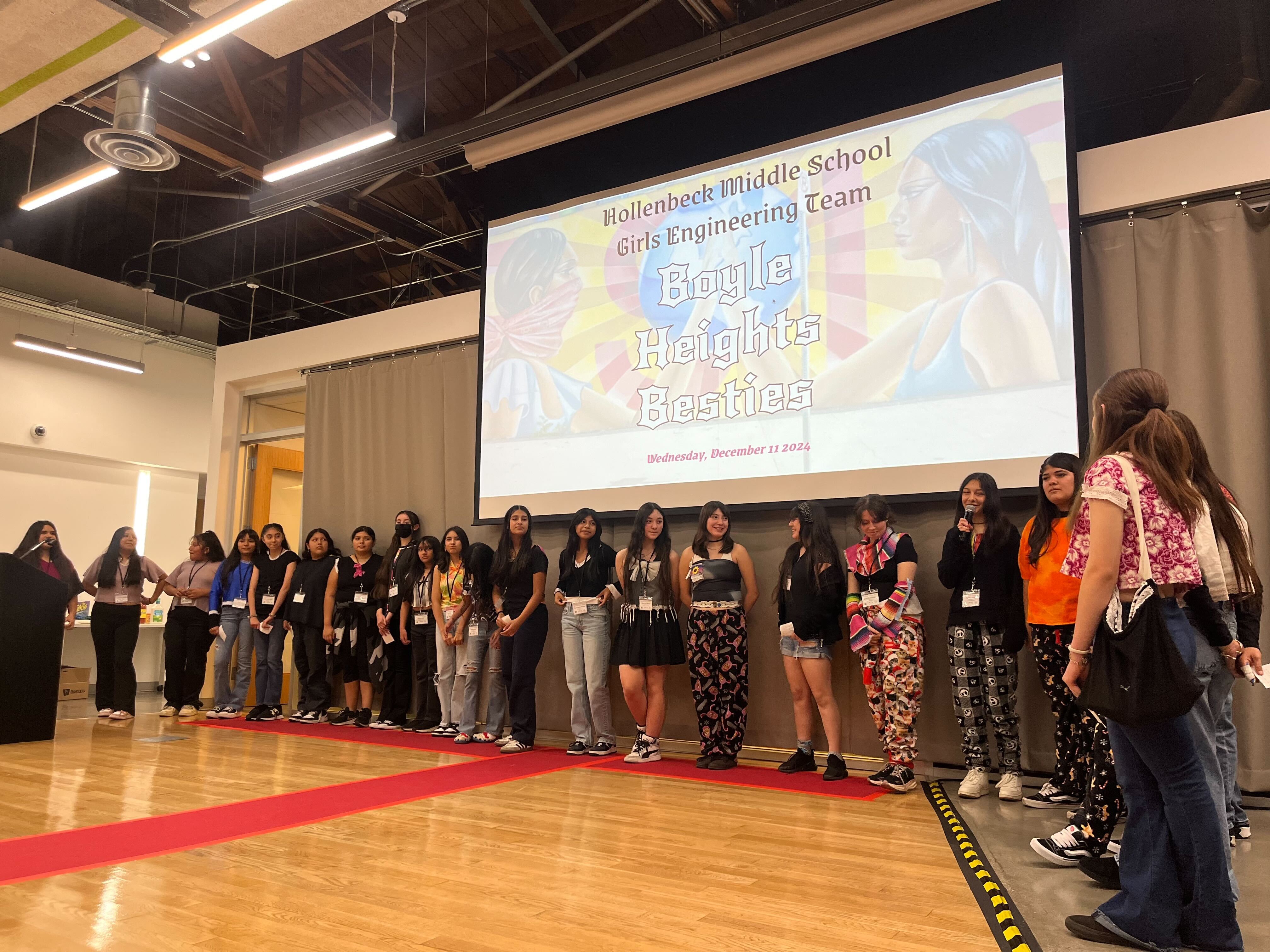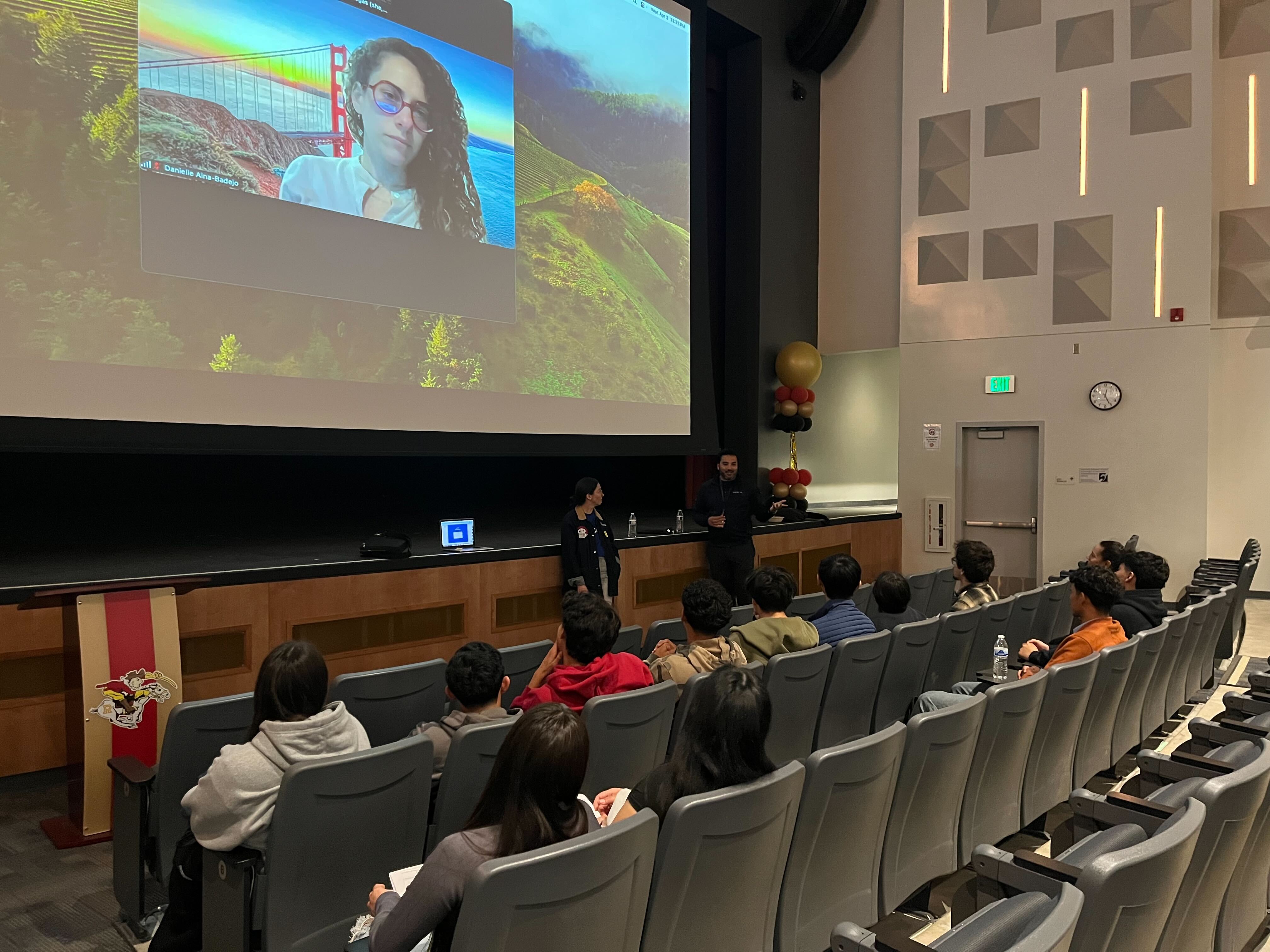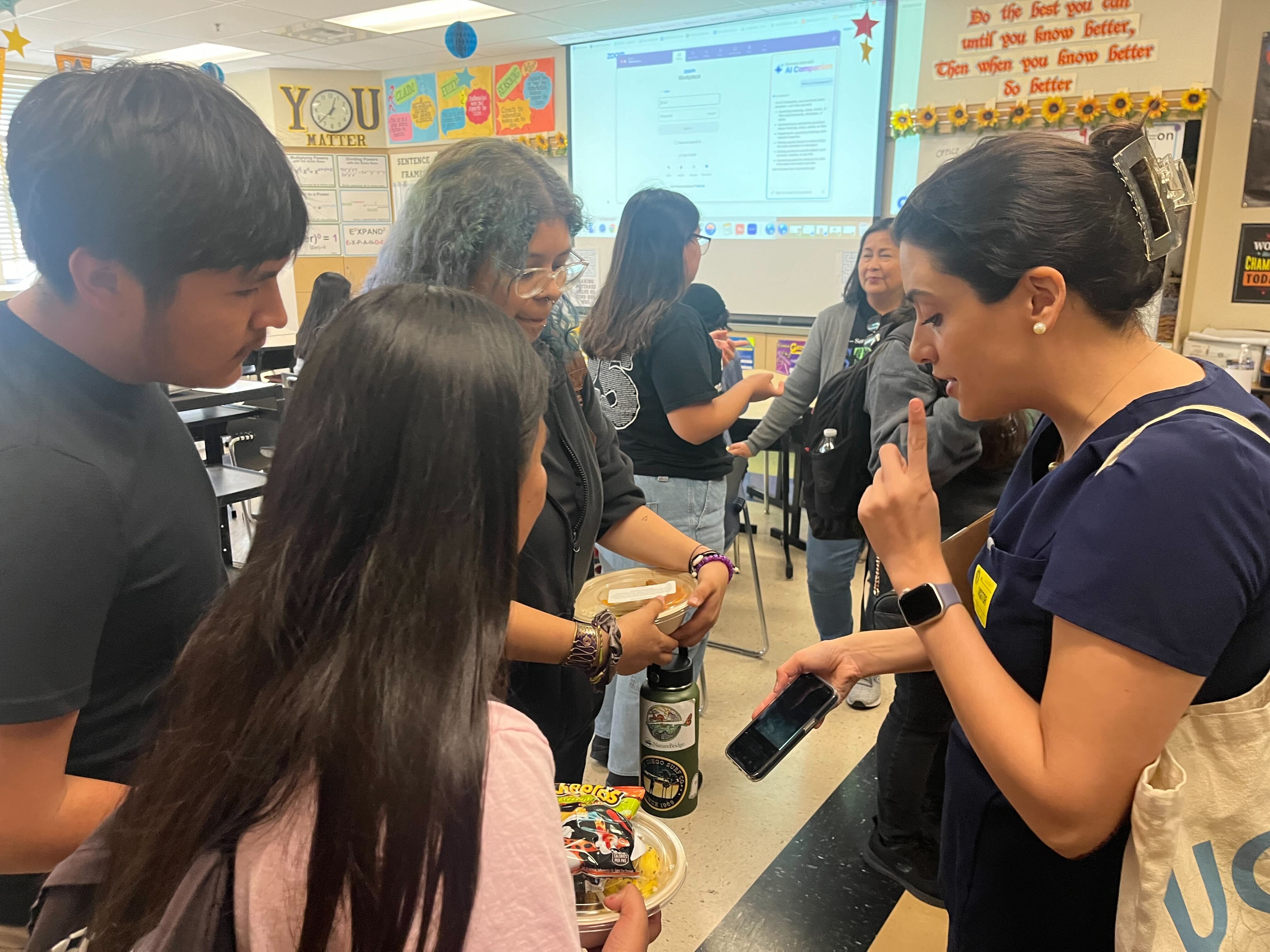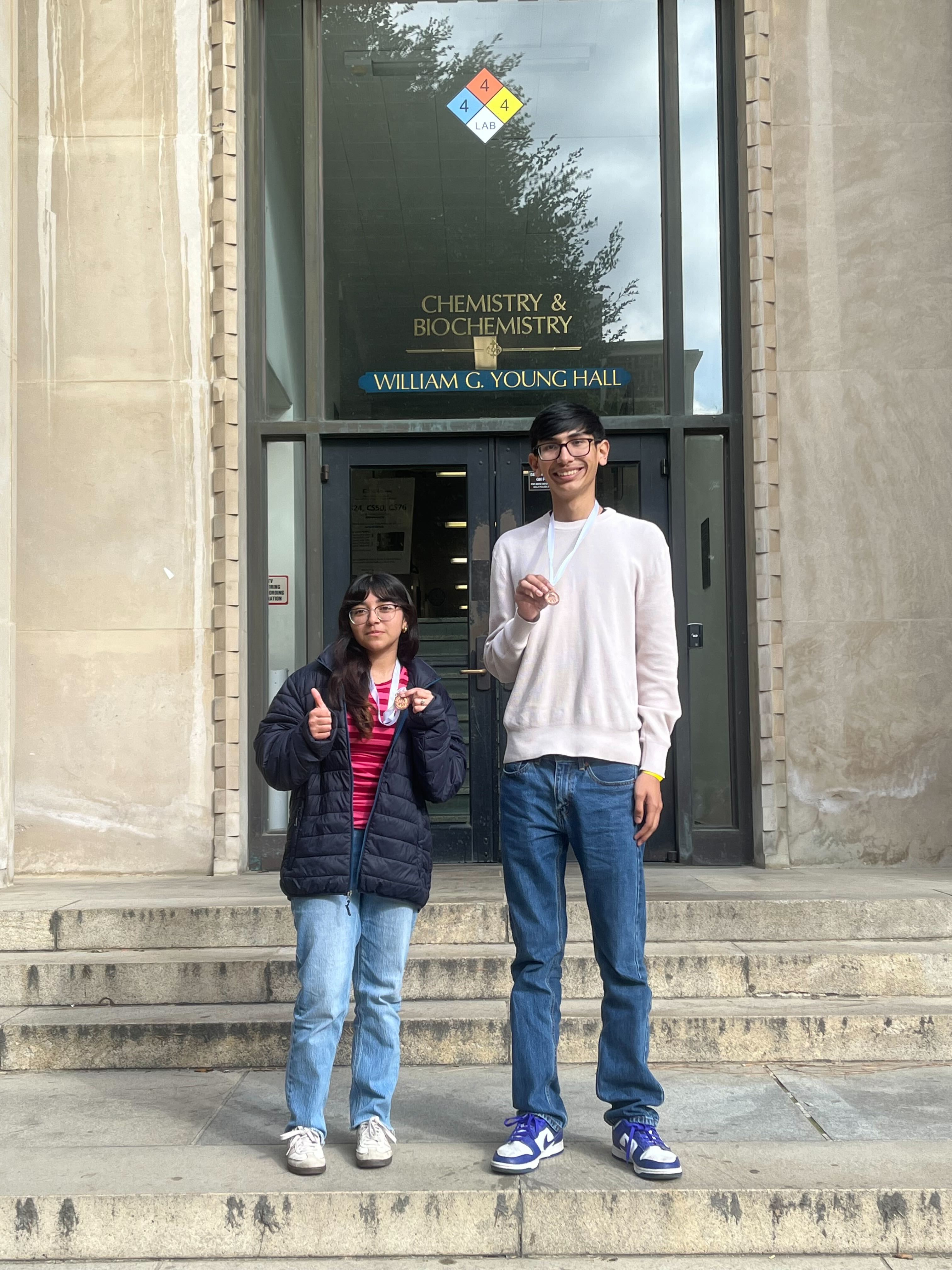LA2050 Blog
We’ve got access to the information that every Angeleno needs to make an impact. Our blog features the latest LA2050 news, announcements, features, happenings, grantee updates, and more.

Partnership for Los Angeles Schools Reimagines STEM Education from K to PhD
PostedOver the past month, we checked in with our 2024 grantees to learn how their funded programs, projects, and initiatives are progressing – and to better understand the impact they’re making across Los Angeles. Now, we are excited to share these interviews, with stories of growth, challenges, and community transformation.
Partnership for Los Angeles Schools (Partnership) received funding through the LA2050 Grants Challenge from the Goldhirsh Foundation to support K-PhD, a STEM enrichment program preparing Black and Latinx students for advanced education and careers. Below is an edited transcript of our conversation with their team.

LA2050: Partnership for Los Angeles Schools drives transformation to accelerate student achievement across the Los Angeles Unified School District (LAUSD), in part through piloting and then scaling innovative programs. Tell us more about this unique model, and why it works.
Partnership: The Partnership is a network of 20 schools spanning grades K-12 across three historically marginalized communities. Our unique model combines innovations incubated directly in classrooms and schools with broader solutions for transformation, creating a dynamic system for piloting, testing, and scaling what works.
At a broad level, we’ve made significant investments in curricula that support long-term trajectories toward careers in math, engineering, and computer science. For example, our program with Bridge to Entering Advanced Mathematics (BEAM) is now active across six elementary and middle schools, engaging students with gamified math lessons and interactive problem-solving. This is complemented by additional STEM resources like Vex kits, Piper kits, and LEGO Robotics.
In middle school, we’ve begun designing our own curriculum in-house to respond to student interests. One standout project is the “Chappell Drone Challenge” at Markham Middle School, where students design, 3D print, and test drone parts to meet real-world flight specifications. As part of our model, these types of programs are first piloted at a single site and then shared across the network if successful.
We also support equity and inclusion through culturally responsive programs like the Multilingual Math Club at Sunrise Elementary, where students solve problems entirely in Spanish. It’s one of the only programs of its kind in the city and creates a powerful access point for newcomer students to build math confidence and peer connection.
This dual approach, system-wide investment, and classroom-based incubation, ensures we’re both scaling what works and constantly adapting to meet student needs on the ground.

LA2050: How does the K-PhD program prepare and encourage Black and Latinx students to pursue STEM careers, and what specific strategies have proven most successful?
Partnership: The K-PhD program is designed to build a joyful and culturally affirming STEM pipeline for K-12 Black, Latinx, and other historically underrepresented students to one day achieve advanced degrees in Engineering, Computer Science, and Mathematics. One of the most impactful strategies this year has been hosting pop-up STEM events across our network of 20 schools. At these events, students and families engage with hands-on activities like building simple circuits, receiving take-home kits and zines that demystify STEM concepts. So far, over 800 students and 100 families have participated, with a goal of reaching 1,000 students by year’s end.
At the high school level, we’re centering student voices to shape programming. When asked what they needed to feel more supported in STEM, students shared that they didn’t know anyone who looked like them in advanced math or science careers. In response, we launched a series of Lunch and Learn sessions with BIPOC STEM professionals, 67% of whom are women, who reflect the identities of our student population. These speakers don’t just present their work; they share their journeys, obstacles, and advice. The feedback has been deeply positive, with students asking insightful questions and seeing new possibilities for themselves.
We’re also investing in liberatory pedagogy for educators through a partnership with Inner Spark Learning Lab (formerly STEM to the Future), and equipping every classroom with a K-PhD library. Our first book series centered the story of Hidden Figures, paired with hands-on lessons inspired by UCLA Math Circles, helping students understand and replicate the actual math behind historical breakthroughs.
By blending culturally relevant teaching, community-building events, and visible representation in STEM, the K-PhD program is nurturing curiosity, confidence, and connection, making the path toward advanced STEM careers feel not just possible, but personal.

LA2050: What do you hope to achieve in the last six months of the grant, and how can the broader LA2050 community support?
Partnership: One of our biggest priorities for the next six months is supporting students in our 1:1 high school cohort as they pursue internships in advanced math, engineering, and medical or biological sciences. Many of these students are incredibly driven but face a significant barrier: they can’t afford to take unpaid internships. To address this, we've secured direct-to-student funds to provide stipends so they can access critical, career-immersion opportunities that are often essential for admission to competitive university programs.
Our next step is identifying host organizations where students can intern and put their skills into practice. We’re specifically looking to partner with STEM-focused institutions, particularly in engineering, medicine, and life sciences, to match students with opportunities aligned to their interests. The broader LA2050 community can support by helping us make those connections and opening doors to organizations that are excited to mentor the next generation of innovators.

Interview Participants:
Katy Cleminson, Director of Advanced Math and Sciences, K-PhD
Nancy Peponis, Senior Director of Institutional Giving
Kiavanne Williams, Manager of Major Gifts